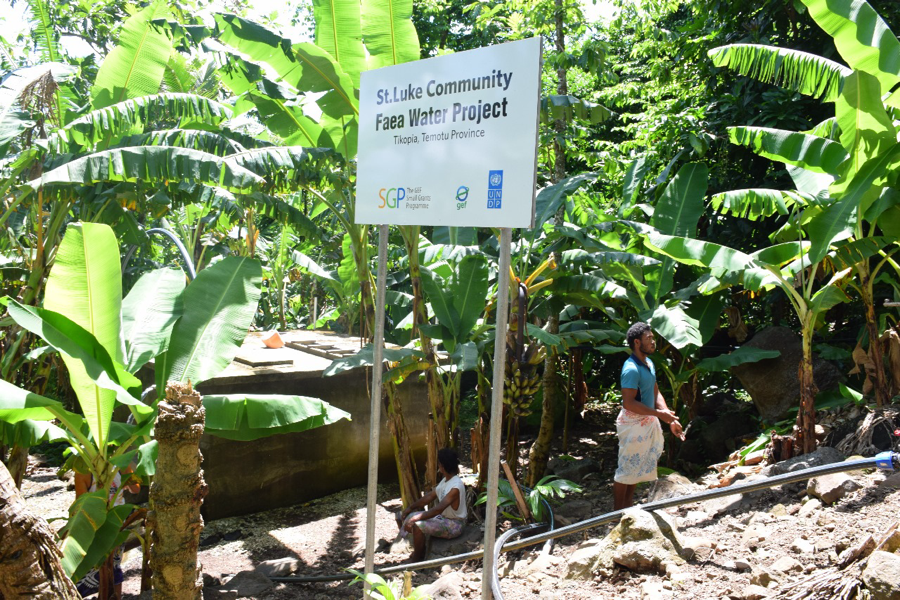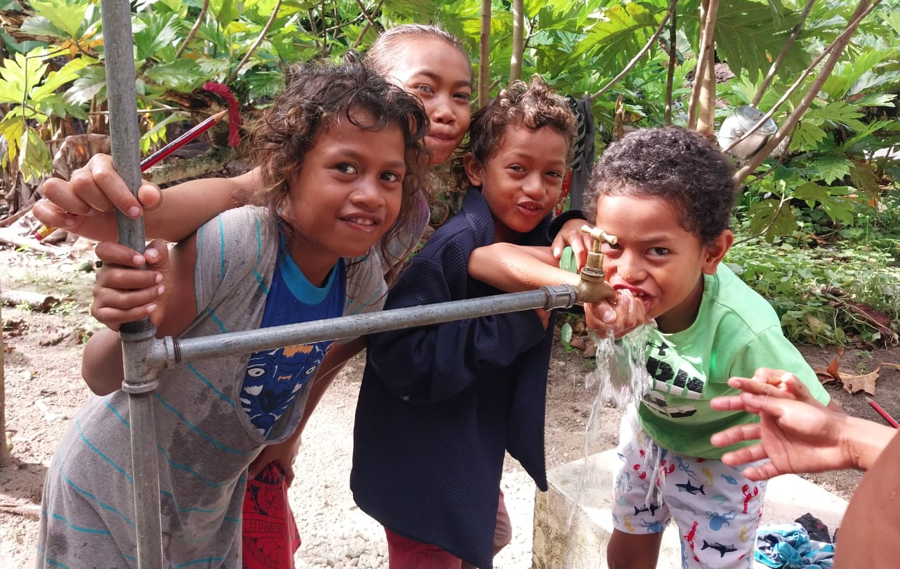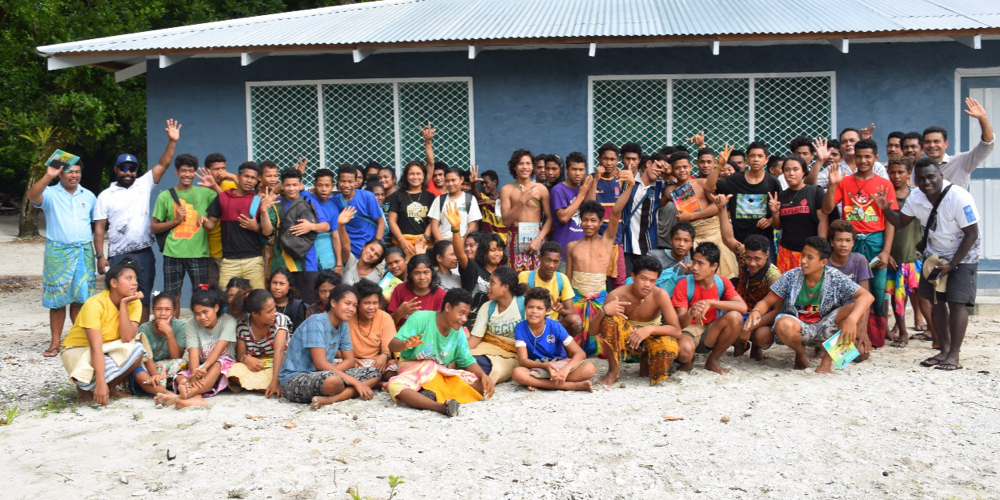Families comprising 576 people in Tikopia, Temotu province are now enjoying reliable access to clean water for drinking, cooking, and washing—right at their houses’ doorsteps.
This transformation follows the successful completion of the St. Luke Community Faea Water Project, which began in June 2023.
Four communities in the Faea District and one in the St. John Community of Ravenga District have benefited from the project, which included the construction of two water dams and a network of 31 standpipes.
For over 20 years, these communities relied on rainwater collection and a deteriorating water system built in the early 1980s. Over time, the system degraded to a single standpipe, which was dry most of the time. Periods of drought, intensified by climate change, often left families struggling to secure water, exacerbating social and economic vulnerabilities on this cyclone-prone and geographically isolated island.
“This project has lifted one of our longest-standing burdens,” said Mr. Pae Seivaea, Chairman of the St. Luke Community. “For years, we had to carry water over long distances—mothers, children, everyone. Now, clean water is right in front of our homes. It is truly changing our daily lives.”
The project’s completion reflects the United Nations Development Programme’s (UNDP) commitment to community-driven development in the Solomon Islands and the broader Pacific region. It directly contributes to improving the resilience and well-being of local populations.

Barnabas Bago, UNDP Team Leader for Resilience and Climate Change, praised the dedication of the local community in completing the project. “This is your success,” he said. “Water is life. It is a vital resource for human survival, and too many communities in the Solomon Islands still lack reliable access to clean and safe drinking water. You are fortunate, and you’ve earned it through your hard work and collaboration with key stakeholders.”
Mr. Bago emphasized how the project aligns with both national and global development goals, including the Solomon Islands National Development Strategy Objective 2—addressing poverty, meeting basic needs, and improving food security—and the UN Sustainable Development Goal 6, which aims to ensure the availability and sustainable management of water and sanitation for all.
The project was funded by the Global Environment Facility (GEF) through the Small Grants Programme (SGP), which supports community-based initiatives worldwide. This initiative empowers local organizations to implement practical solutions for climate change adaptation and disaster risk reduction, fostering sustainable development and improving quality of life.
Tikopia, one of the outer islands of Temotu Province, is among the most remote territories in the Solomon Islands. Home to around 1,200 people living in 20 coastal villages, its remoteness presents challenges for government service delivery. Despite its isolation, Tikopia is renowned for its rich cultural heritage and strong communal traditions. Its lush environment supports a subsistence lifestyle based on fishing, gardening, and the cultivation of crops such as taro, bananas, and coconuts.











